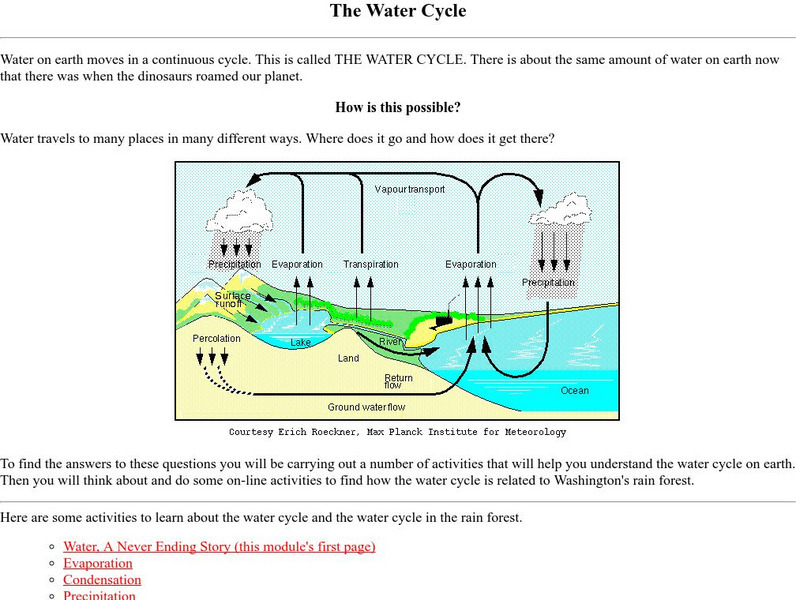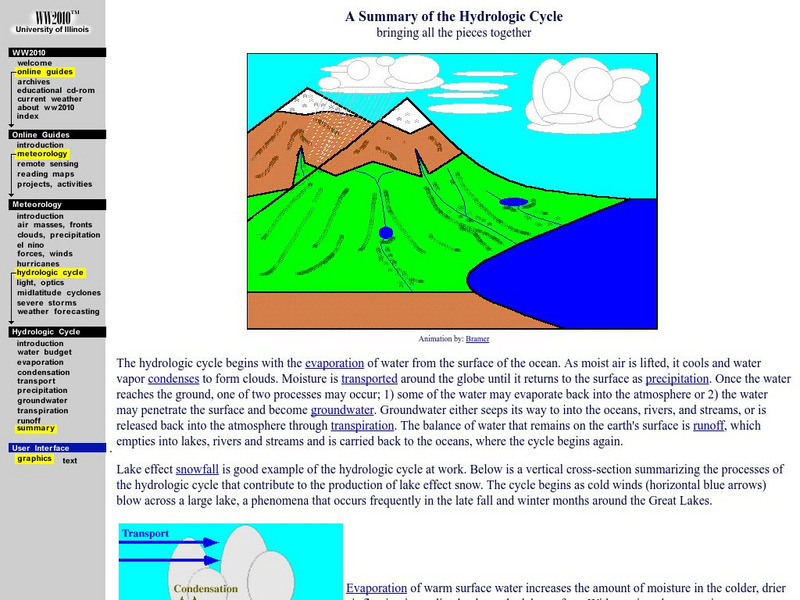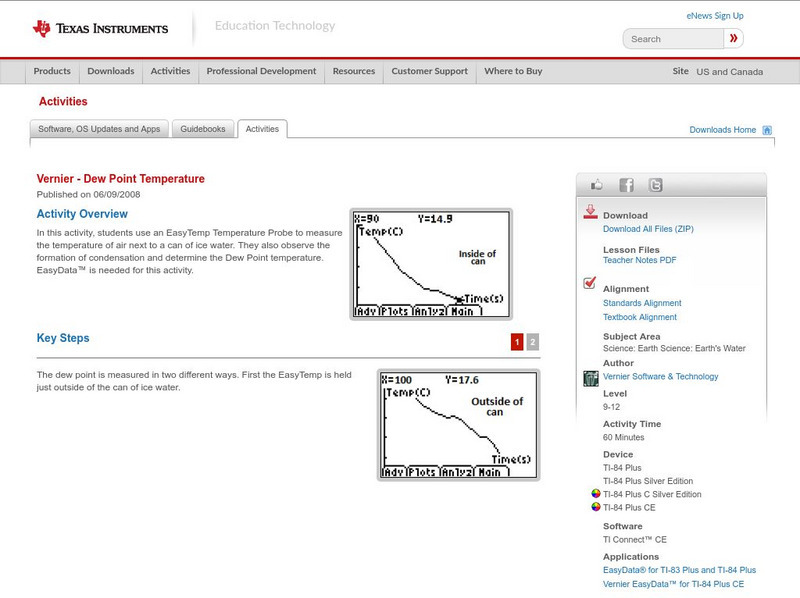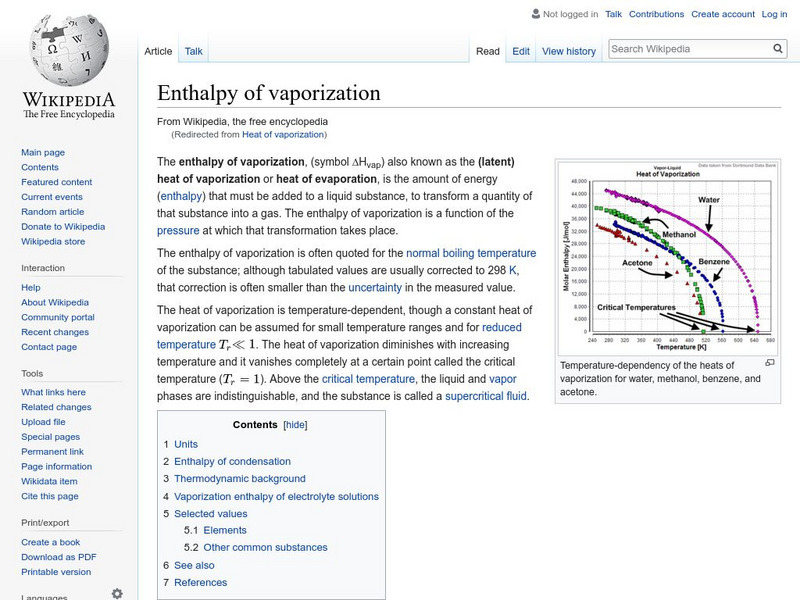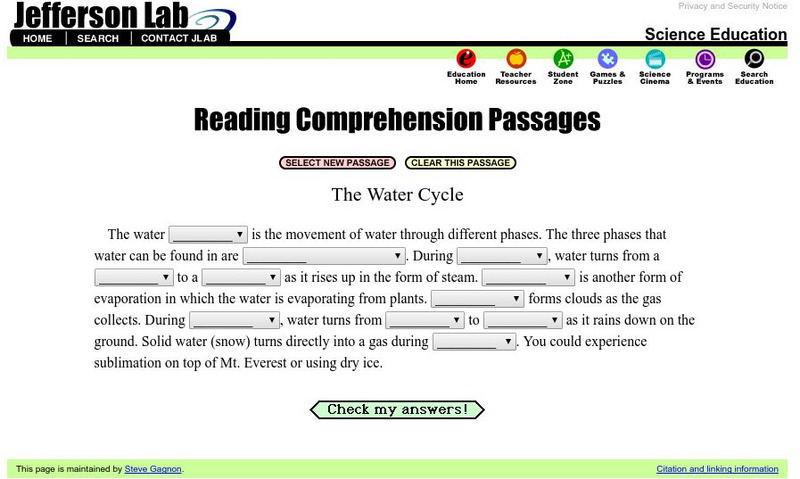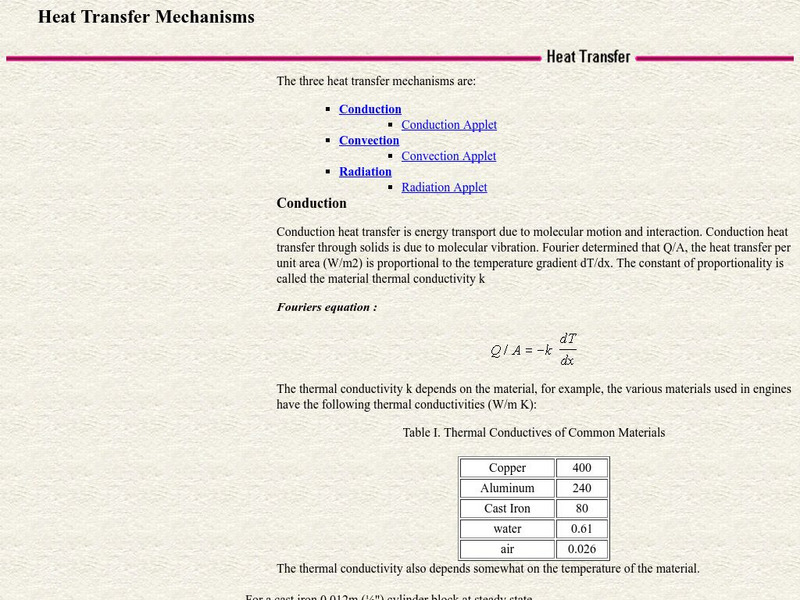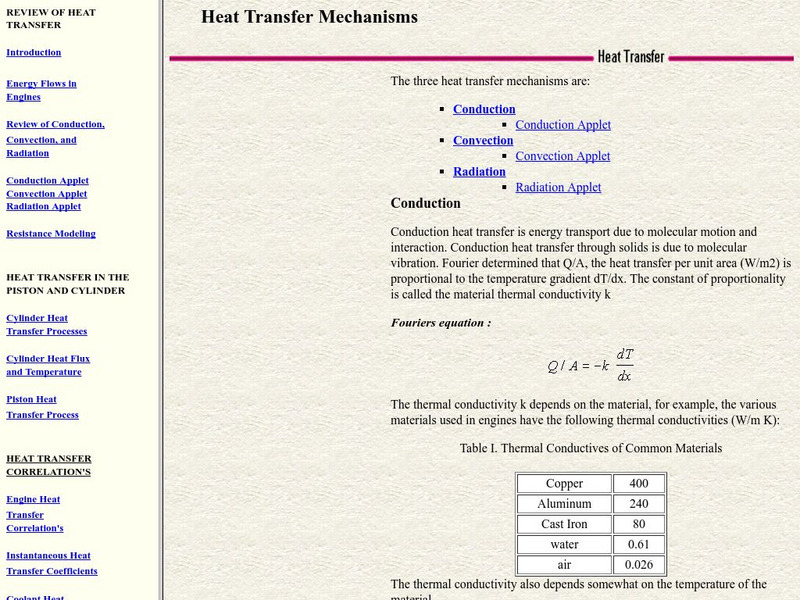Georgia State University
Georgia State University: Hyper Physics: Heat Engine Concepts: The Otto Cycle
Schematic diagrams illustrating the operation of a four-stroke engine cycle. Interactive buttons allow you to step through the various steps of each engine cycle. Each graphic is accompanied by an excellent explanation.
Georgia State University
Georgia State University: Hyper Physics: Heat Engine Concepts: Carnot Cycle
The Carnot cycle is described, illustrated and explained. The Carnot efficiency equation is given and interactive JavaScript form allows the visitor to investigate the effect of the reservoir temperature and the sink temperature upon the...
Georgia State University
Georgia State University: Hyper Physics: Phase Change Concepts
An indexing page for the HyperPhysics site. This page includes links to a variety of pages at the site which contain information related to phase changes. Each individual page consists of informative graphics and clear explanations.
Georgia State University
Georgia State University: Hyper Physics: Heat Engine Cycle
The heat engine cycle is defined and discussed. So pressure-volume diagrams are introduced and their use in depicting the cycles of a heat engine is demonstrated. Informative graphics are accompanied by reason-filled explanations.
Georgia State University
Georgia State University: Hyper Physics: Heat Engine Concepts
An indexing page for the HyperPhysics site. The page contains a concept map of links to a variety of other pages which discuss concepts related to heat engines. All pages contain informative graphics and excellent explanations.
McREL International
Mc Rel: Water Cycle [Pdf]
An assessment question requiring knowledge of water cycle science with the opportunity for the student to use reasoning skills.
E-learning for Kids
E Learning for Kids: Science: Bermuda Triangle: What Is Condensation?
Cindy is at the beach learning a lot about water. Join her to explore the water cycle.
University of Washington
University of Washington: Water Cycle
This page from the University of Washington has an excellent diagram of the water cycle. There are 8 water cycle hands on activities on the bottom of the page. Also there is a link to a teacher reference page.
University of Illinois
University of Illinois Urbana Champaign: Observed Dew Point Temperature
Describes what dew point is and how it relates to moisture content of the air. Also explains condensation and relative humidity.
New York University
Nyu: Welcome to Water
Educational resource invites users to understand the properties of water by first examining what water is and how we use it and then leads users to further information on the three states that water can exist.
University of Illinois
University of Illinois Urbana Champaign: A Summary of the Hydrologic Cycle
Animation and text explain the water--or hydrologic--cycle, which is the process that water undergoes in nature.
Texas Instruments
Texas Instruments: Dew Point Temperature
In this activity, students use an EasyTemp Temperature Probe to measure the temperature of air next to a can of ice water. They also observe the formation of condensation and determine the Dew Point temperature. EasyData is needed for...
Science Education Resource Center at Carleton College
Serc: Investigating How Do Clouds Form? What Are the Different Types of Clouds?
In this investigation, students will observe and learn about the different types of clouds and be able to explain in their own words how clouds are formed. They will also observe an experiment illustrating how clouds form.
Science Education Resource Center at Carleton College
Serc: Cloud Inquiry Investigation & Id
Students describe and create an experiment to indicate that a cloud will form under specific conditions.
Wikimedia
Wikipedia: Heat of Vaporization
Wikipedia offers a site on the heat of vaporization. Provides a chart of the heat of vaporization of the elements.
PBS
Pbs Learning Media: Earth's Water Movements
The paths that water can take through Earth's systems are many and complex. Examine the following diagram from NASA depicting the water cycle. Studying the water cycle is important because changes in the water cycle affect all parts of...
Thomas Jefferson National Accelerator Facility
Jefferson Lab: Reading Passage: The Water Cycle 2
Read and fill in the blanks of this passage explaining the water cycle. Each blank has a dropdown menu with choices. When you finish, click CHECK MY ANSWERS. If you pick a wrong answer, the right answer will be displayed along with your...
Other
Ics: Temperature, Humidity, and Dew Point
This site provides a discussion of dew point and relative humidity, containing formulas that look at connections between temperature, humidity, and dew point.
Colorado State University
Csu: Heat Transfer Mechanisms
An excellent page from the Colorado State University with a heavy mathematical emphasis. Each form of heat transfer--conduction, convection, and radiation--is defined, compared, and contrasted. Mathematical equations governing the rates...
Colorado State University
Colorado State University: Heat Transfer Mechanisms
An excellent page from the Colorado State University with a heavy mathematical emphasis. Each form of heat transfer--conduction, convection, and radiation--is defined, compared and contrasted. Mathematical equations governing the rates...
US Geological Survey
Usgs: The Water Cycle
Learn about the movement of water from Earth's surface to the atmosphere with this site. Site describes the water cycle in words and with a diagram. Also explored on the page is the distribution of Earth's global water supply.
Center of Science and Industry
Cosi Columbus: Clues About Clouds
Science experiment that simulates how clouds are formed. Includes full list of materials, procedures, and scientific explanation of what must happen in the atmosphere for cloud formation to occur.
Ministry of Education, Sports & Culture (Samoa) Government
Mesc: Samoa School Net: Rain and Water Cycle: Weather and Water Cycle
Explains the different stages in the water cycle while covering important vocabulary. Supported by lots of visuals and includes a good water cycle animation.
University of Victoria (Canada)
Weather Watch: Water Cycle
Excellent discussion and illustration of the water cycle.




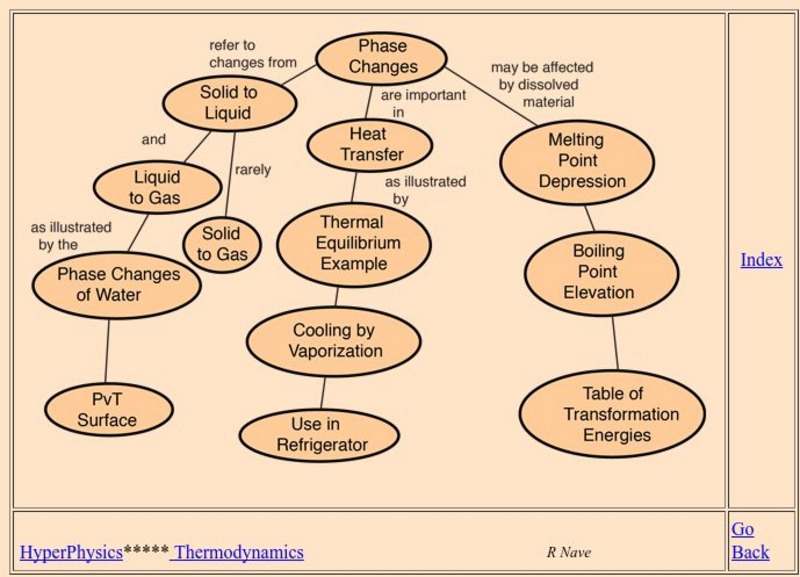

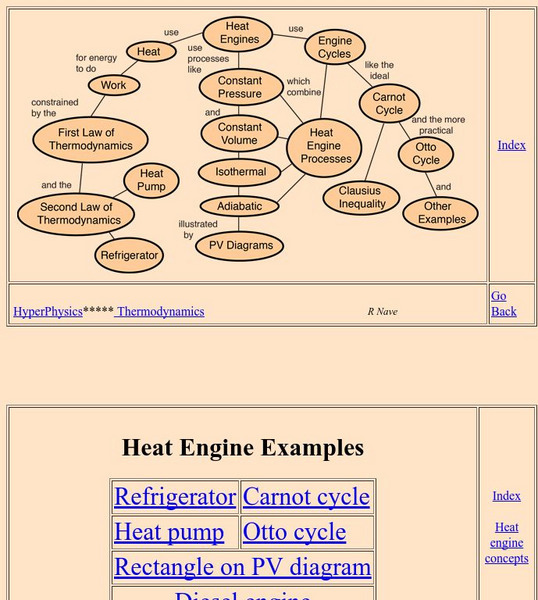
![Mc Rel: Water Cycle [Pdf] Unknown Type Mc Rel: Water Cycle [Pdf] Unknown Type](https://d15y2dacu3jp90.cloudfront.net/images/attachment_defaults/resource/large/FPO-knovation.png)

